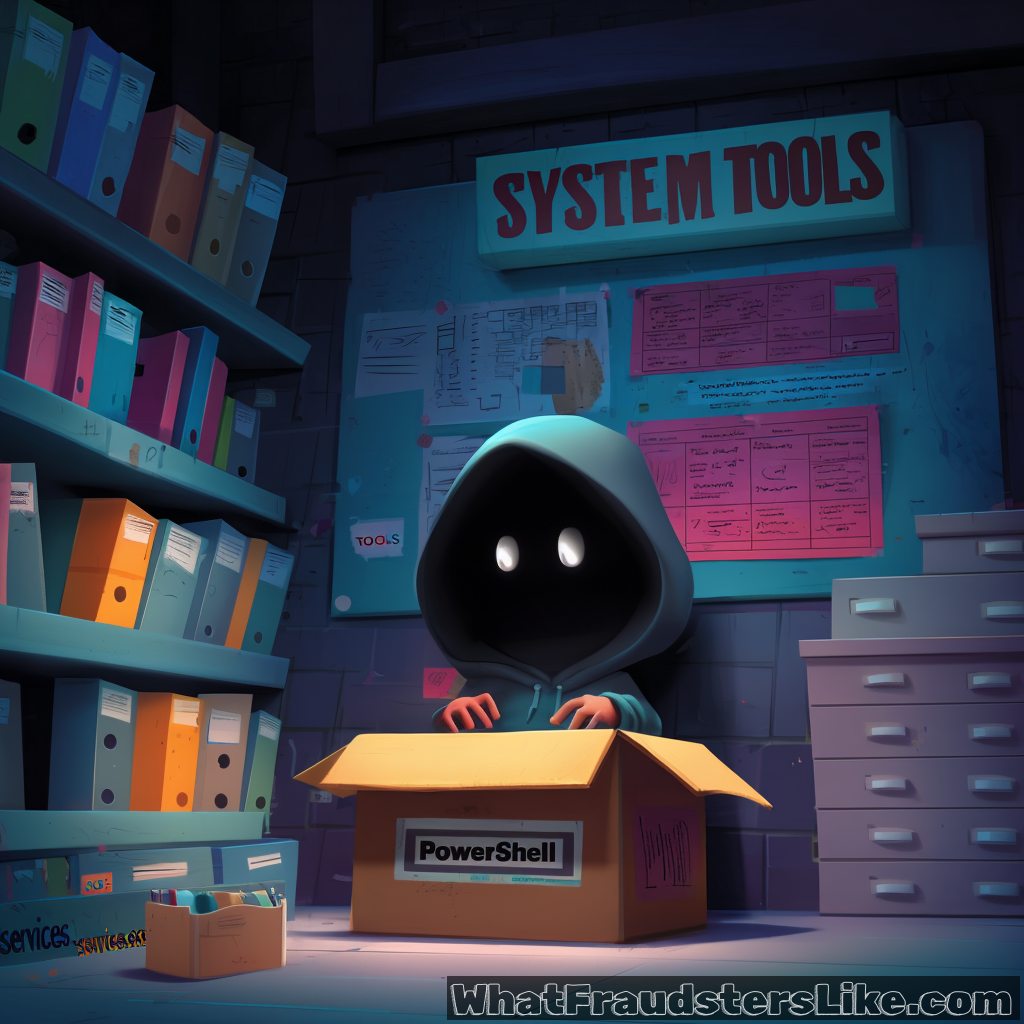Ever seen a burglar use your own ladder to climb into your house? That's exactly what this trick is all about.
'Living off the Land' means attackers use trusted, legitimate tools — the same ones your IT team or even you use daily — to sneak around, steal data, or move money. No flashy virus, no weird downloads. Just everyday tools doing not-so-everyday things[ref].
Ways They Are Pulling It Off:
💻 Automate for speed: Built-in scripts help them steal data or move funds quietly (Tools: PowerShell, cron)
🔐 Log in like insiders: Using stolen accounts or session tokens instead of malware (Tools: Stolen credentials, SSO/session tokens)
🚪 Move between systems: Abusing tools meant for admins to explore deeper into networks (Tools: PsExec, SSH)
⚡ Escalate privileges: Using misconfigurations, writable service files, or allowed admin behaviors so a normal user gains admin powers, even without exotic malware (Tools: Hijacking scheduled tasks/services with schtasks/sc, abusing sudo rules or SUID binaries)
🔄 Ensure persistence: Creating hidden backdoors so they can return even after reboots or password changes (Tools: Registry modifications via reg.exe, WMI event subscriptions, scheduled tasks via schtasks, startup folders, service modifications via sc.exe)
📡 Stay invisible: Since the tools they use are trusted, most security systems don't scream "intruder!" (Tools: certutil, regsvr32)
📊 Numbers Raising the Eyebrows:
- Over 80% of major attacks now rely on 'living off the land' tools[ref].
- PowerShell, one of Windows’ default utilities, appears in 7 out of 10 such incidents[ref].
- The FIN7 gang alone caused more than $1 billion in losses, mostly without installing anything new.
💡 Why It Works:
Because blocking these tools entirely would also break your office network. It's like banning spoons because someone once ate too much ice cream. The tools are legitimate. The behavior? Not so much.
🏢 How to Fight Back - Companies:
- Limit who can use powerful admin tools.
- Keep detailed logs of all activity.
- Watch for strange behavior from "normal" programs.
- Enable advanced monitoring that detects unusual patterns, not just known malware.
🙋 How to Fight Back - For All of Us:
- Don't store passwords in plain files or spreadsheets.
- Beware of unexpected "IT support" emails.
- Never share verification codes with anyone.
- Always pause before clicking on anything urgent.
The bottom line? When attackers can turn your own tools into weapons, traditional defenses aren't enough. You need eyes on behavior, not just files.
